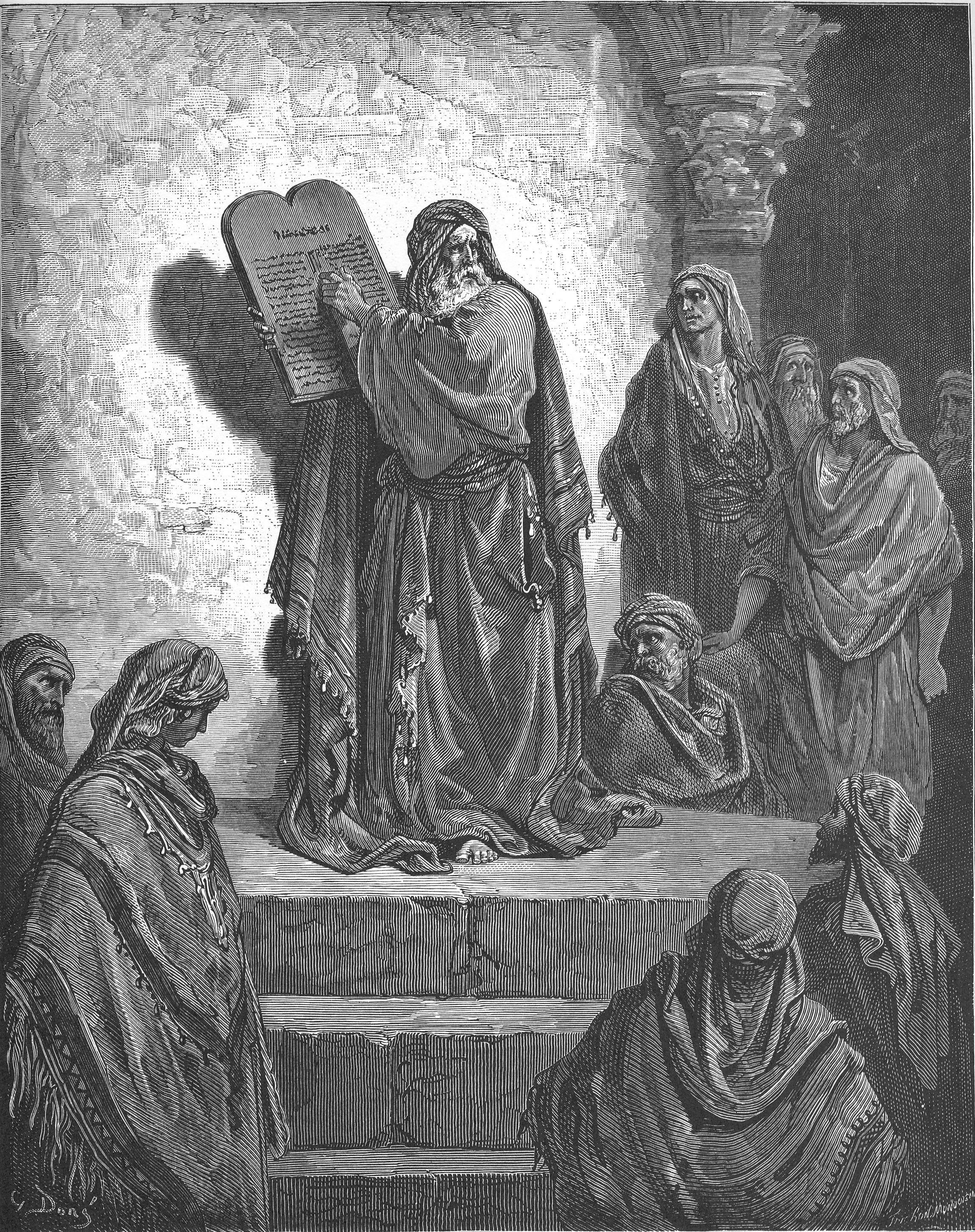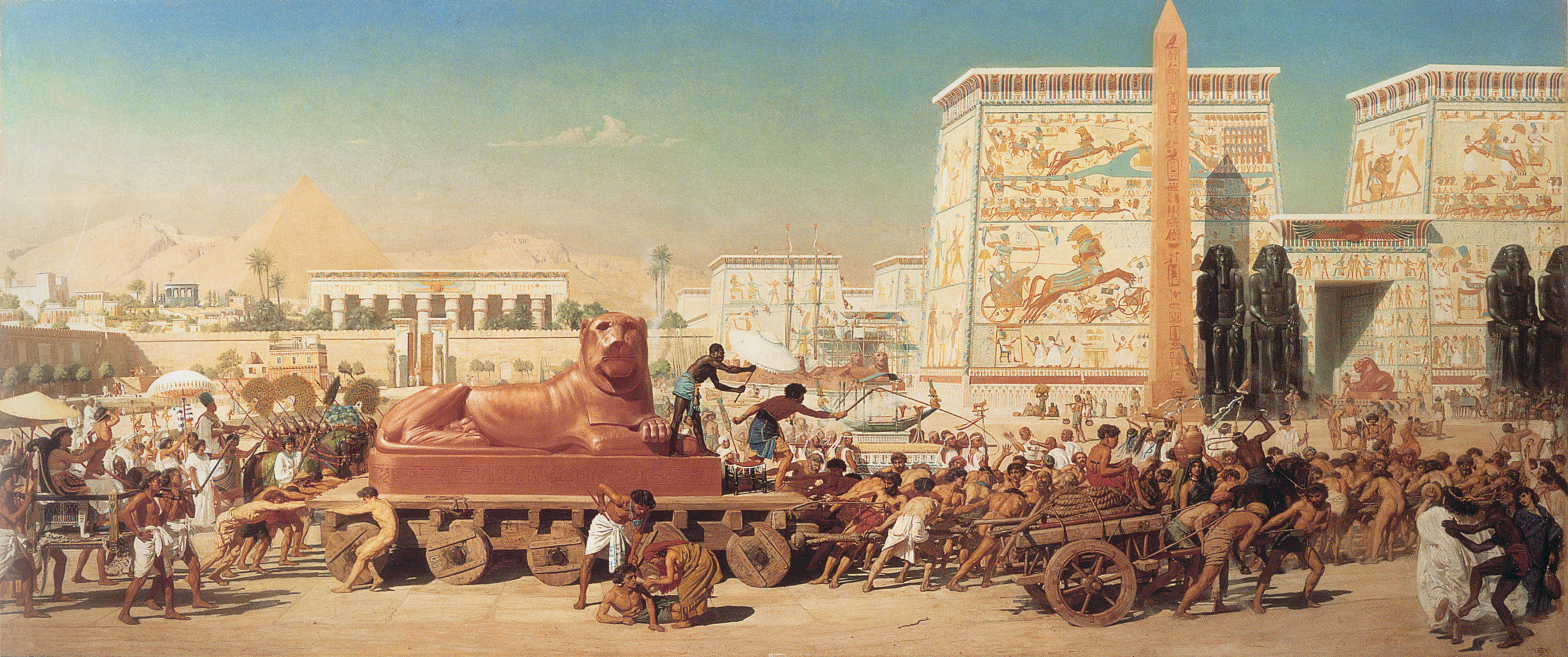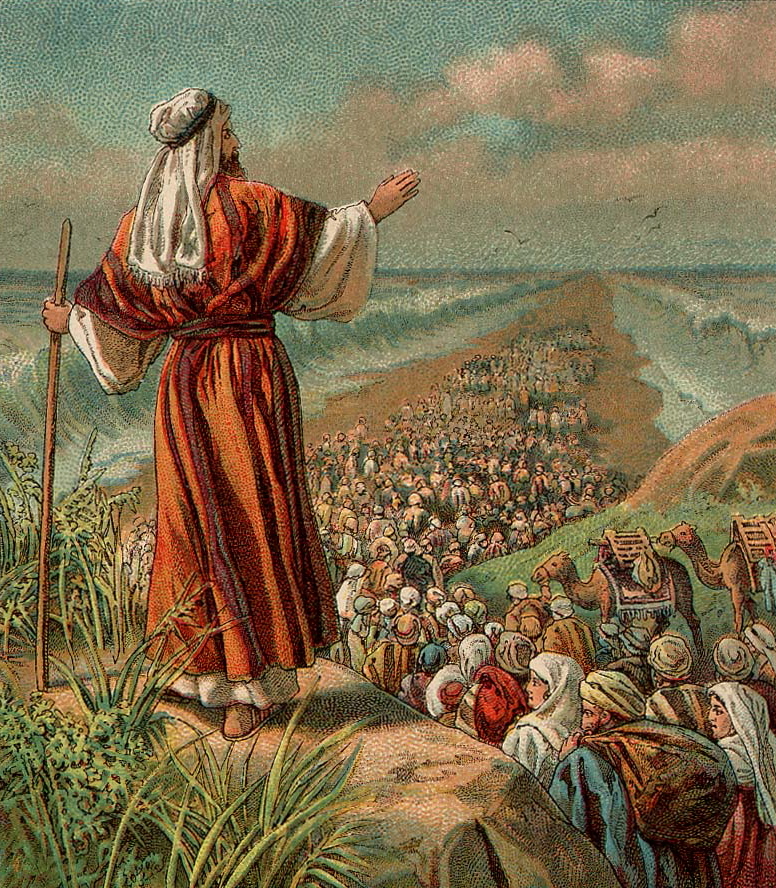Exodus, The
Enlarge text Shrink textThe Exodus (Hebrew: יציאת מצרים, Yəṣīʾat Mīṣrayīm: lit. 'Departure from Egypt') is the founding myth of the Israelites whose narrative is spread over four of the five books of the Pentateuch (specifically, Exodus, Leviticus, Numbers, and Deuteronomy). The narrative of the Exodus describes a history of Egyptian bondage of the Israelites followed by their exodus from Egypt through a passage in the Red Sea, in pursuit of the Promised Land under the leadership of Moses. The story of the Exodus is central in Judaism. It is recounted daily in Jewish prayers and celebrated in festivals such as Passover. Early Christians saw the Exodus as a typological prefiguration of resurrection and salvation by Jesus. The Exodus is also recounted in the Qur'an as part of the extensive referencing of the life of Moses, a major prophet in Islam. The narrative has also resonated with various groups in more recent centuries, such as among African Americans striving for freedom and civil rights, and in liberation theology. The consensus of modern scholars on the historicity of the Exodus is that the Pentateuch does not give an accurate account of the origins of the Israelites, who appear instead to have formed as an entity in the central highlands of Canaan in the late second millennium BCE (around the time of the Late Bronze Age collapse) from the indigenous Canaanite culture. Most modern scholars believe that some elements in the story of the Exodus might have some historical basis, but that any such basis has little resemblance to the story told in the Pentateuch. While the majority of modern scholars date the composition of the Pentateuch to the period of the Achaemenid Empire (5th century BCE), some of the elements of this narrative are older, since allusions to the story are made by 8th-century BCE prophets such as Amos and Hosea.
Read more on Wikipedia >
 Topic
Topic








